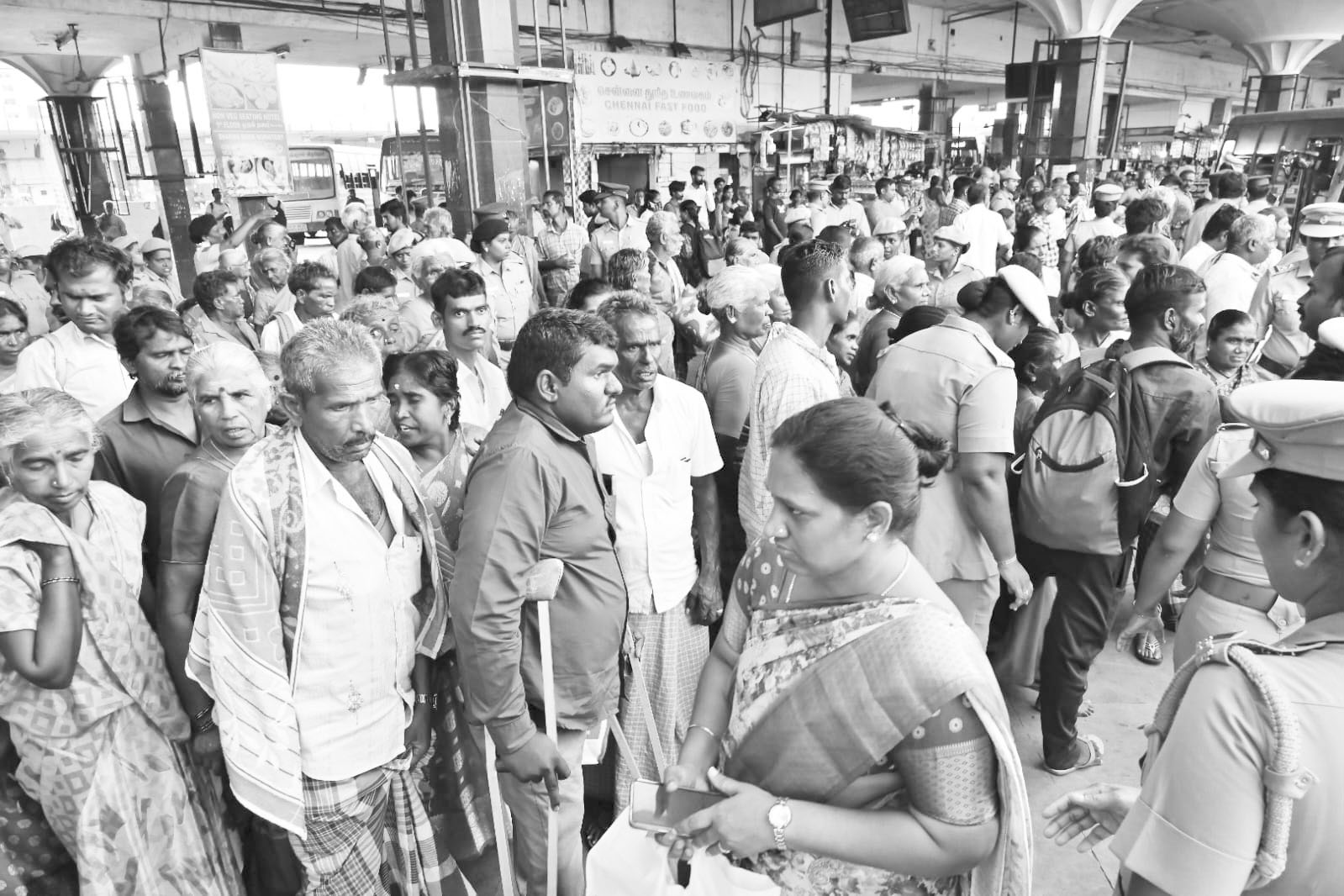
S Namburajan
THE response to the call for an uninterrupted siege of the Fort St. George, Chennai, the seat of power of the Tamil Nadu government was unprecedented. Thousands of disabled persons had, braving many obstacles, began their journey from various parts of the state towards the state capital to participate in the siege that was to commence in the morning hours of April 22. The call for the mobilisation was given by the Tamil Nadu Association for the Rights of the Differently Abled and Caregivers (TARATDAC), the state affiliate of the National Platform for the Rights of the Disabled (NPRD) centering around livelihood issues.
For the past several months, the TARATDAC has been conducting a relentless campaign demanding a considerable enhancement in the monthly assistance given to disabled persons and certain issues connected with employment under the MNREGS. Three major state-wide struggles were conducted during the last ten months in which over 35,000 disabled persons took part. The call for the siege was given after the state government failed to respond to these demands.
Currently, the amount of monthly assistance given to disabled persons is from two different departments – one from the Revenue Department and the other from the Differently Abled Welfare Department. While the latter gives Rs 2000 to six specific categories of disabled persons, the former gives Rs 1500 to all the other categories. The TARATDAC has been demanding that this assistance be revised upwards to at least Rs 6000; and, depending on the severity of the disability be increased to Rs 10,000 and Rs 15,000 – on the lines of the assistance given in the neighbouring state of Andhra Pradesh. They also sought the disbursement of this allowance through a single department and also clearing of all backlog applications.
The other demand was with regard to restoring the earlier provision of relaxation in working hours for disabled workers under the MNREGS. As per the guidelines the disabled need to work only half the time as compared to others. But this was revised in July 2024 mandating that they also work for eight hours, like others. They also demanded that all disabled registered for work under MNREGS should be provided jobs.
In a bid to thwart the assembly of thousands of disabled persons in the state capital, the state government took several repressive measures. Since the evening of April 21, district and block leaders of the organisations were put under house arrest. In one instance, male police personnel were posted outside the hut of a woman wheelchair user and her elderly mother.
Several hundred others who were proceeding towards bus stations and railway stations were forcibly sent back. At many places they were either prevented from boarding buses and trains or deboarded midway despite holding valid tickets.
Braving all these oppressive measures, thousands of disabled persons attempted to make their way to Chennai. Many were arrested when they reached the adjoining districts or the borders of Chennai. As per information available, over 6,800 disabled and their caregivers were arrested on April 22 and put under police custody in 21 different locations in and around Chennai. Many of them were subjected to manhandling, beating and verbal abuse. Several instances of their mobile phones being snatched and forcibly deleting recorded evidence of ill-treatment were reported.
The heavy police deployment around the state secretariat prevented any gathering to take place. Those who reached there were either driven away or arrested. Even those with visual impairment, intellectual disabilities and those on high support were not spared and they were separated from their caregivers or assistants. Those lodged at various places were not provided water or food and kept under miserable conditions.
The police made several attempts to disperse those who were arrested. But they remained adamant and defiant. The police then started disconnecting power and water supply from the halls in which they were lodged and also separated them from their leaders. Many were forcibly boarded into buses and dropped hundreds of kilometers away. These human rights violations were in complete disregard of the Madras High Court’s guidelines for dignified treatment of disabled protesters.
Realising that the agitators would not budge and give up, the government retreated and sent the social welfare minister P Geetha Jeevan in the night around 11 pm to the hall in Mylapore where the leaders of the TARATDAC were being held. Negotiations were held with the leadership. Those who were present in these discussions included S Namburajan, working president of the NPRD, T Wilson, state president, B Jansirani, general secretary, K R Chakkaravarthi, treasurer of TARATDAC.
The minister conceded that except for the demand of enhancing the amount of assistance, all the demands are being accepted by the government. She also assured that they will be implemented immediately. With regard to increasing the assistance, she said that it will be considered by the chief minister and implemented in the near future. Given these assurances, the leadership declared the discontinuation of the struggle for the time being.
The CPI(M) state secretariat also came out with a statement in support of the struggle and sought to prevail upon the state government to concede the legitimate demands of the disabled protesters.


